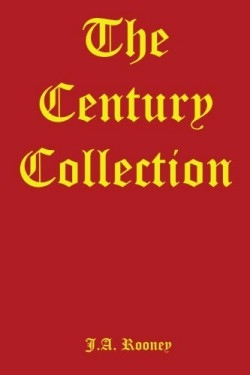It looks like you've stumbled upon a page meant to be read by our code instead of viewed directly. You're probably looking for this page.
The Century Collection
“Ten poems per subject / and a hundred grouped haikus / right wrongs rail weep pray.” This seventeen-word description of J.A. Rooney’s collection of socially conscious poems The Century Collection is from the author himself. The poet earns the nickname “Radical” by refusing to compromise in his rhetoric while observing suffering through the eyes of a multitude of victims and persecutors.
Nearly all of these poems are grouped into broad categories: Life Love Tragedy Poverty Praise and so on. The poet prefers to write about specific actual events including Hiroshima’s destruction by the Enola Gay and the King’s Cross Tube tragedy which is commemorated in a poem Prince Charles is said to have liked. The poet doesn’t shy away from indicting a host of villains (by name) with his pen or commemorating good people who met early demises. The structures feature end-rhymes and no terminal punctuation. The explanatory notes that accompany so many poems provide grounding context for each notably improving comprehension and enjoyment.
Some of the least affected pieces are less about mass tragedies or widespread societal problems than they are about the despair of individuals. No one has ever erected a statue to those unfortunate enough to have survived failed eye surgery but Rooney puts the reader squarely inside the head of someone in that situation in “Dark for Me”: “When at noon the sun / Lit my life with fear / It was still dark and / All that I could see / Were dark explosions / Of mystery.” Walt Whitman’s ebullient feeling of nostalgia in “Once I Pass’d Through A Populous City” is turned inside out in “The Runaway”: “As he stalked along the street and I saw his frightened face / When he entered slow this city devoid of love or pity.”
Though some poems ring of wonder or urge faith in God outrage is most prevalent and Rooney’s outrage has an unfortunate tendency to steamroll the artistic balance. Members of the Irish Republican Army animal testers at cosmetics companies war-loving generals and others the poet opposes aren’t outlined in complex portraits of positive qualities vying with flaws. Instead their unadulterated villainy is reinforced to the maximum creating cartoonish figures who relish destruction. Some runs of verse are familiar upon first read for example a haiku which drifts close to borrowing from a long-repeated rhyme: “Two men staring out / Prison bars; one sees darkness / The other sees stars.”
Radical Rooney was born in Belfast and has lived in England for most of the last several decades except for some time spent working in Israel and the United States. He’s an active journalist photographer magazine publisher and inventor. His imaginative turns of phrase are arranged carefully enough but he truly stands out for a limitless concern for all sorts of downtrodden classes and luckless bystanders. Rooney sees pain as unavoidable writing “We must all suffer / for without pain there can’t be / Any compassion.” Cheers to this voice for the voiceless.
Disclosure: This article is not an endorsement, but a review. The publisher of this book provided free copies of the book and paid a small fee to have their book reviewed by a professional reviewer. Foreword Reviews and Clarion Reviews make no guarantee that the publisher will receive a positive review. Foreword Magazine, Inc. is disclosing this in accordance with the Federal Trade Commission’s 16 CFR, Part 255.
